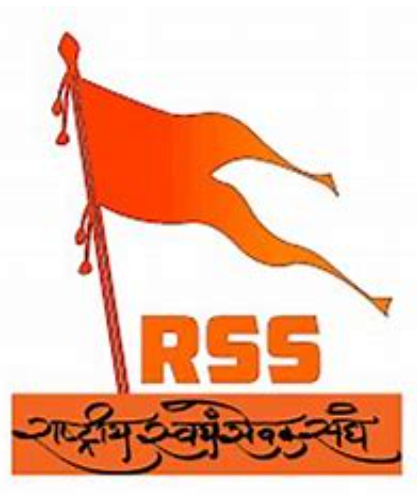RSS Celebrates 100 Years on Vijayadashami (GS Paper 1, Society)

Context
- The Rashtriya Swayamsevak Sangh (RSS), recognized as the world's largest voluntary organization, proudly held its centenary celebration on the auspicious occasion of Vijayadashami, also known as Dussehra.
- Established on this day in 1925, the RSS has evolved significantly over the past century, expanding its reach and influence across India and beyond.
Prime Minister Modi Acknowledges RSS’s Contributions
- Prime Minister Narendra Modi acknowledged the RSS's monumental achievement in a heartfelt message on social media platform X.
- He commended the organization for its substantial contributions to nation-building, emphasizing its role in fostering unity and promoting national pride.
- Modi urged his followers to listen to RSS chief Mohan Bhagwat’s annual Vijayadashami address, which he described as a “must-listen” for anyone interested in understanding the organization’s vision and values.
- The Prime Minister extended congratulations to all RSS volunteers, celebrating the organization's steadfast dedication to "Maa Bharti" (Mother India) and expressing hope that its commitment will inspire future generations in the pursuit of a “Viksit Bharat” (Developed India).
A Historical Overview of RSS
Founding and Ideological Roots
- The RSS was founded by Keshav Baliram Hedgewar, a physician and social reformer from Maharashtra.
- Emerging during a tumultuous period marked by British colonial rule and rising communal tensions between Hindus and Muslims, the organization sought to promote a sense of cultural and national identity among Hindus.
- Hedgewar was deeply influenced by the writings of Vinayak Damodar Savarkar, who articulated the concept of Hindutva—a vision of India as fundamentally a Hindu nation.
- The RSS aimed to foster a sense of pride and responsibility among Hindus, positioning itself as a counterforce to both colonial rule and the perceived neglect of Hindu cultural values.
Early Focus and Evolution
- In its early years, the RSS primarily attracted upper-caste Brahmins and was involved in various activities aimed at promoting Hindu interests.
- Its focus included education, social service, and fostering a sense of discipline and community among its members.
- The organization quickly grew in membership and influence, especially among the youth.
- After Hedgewar’s death in 1940, leadership passed to Madhava Sadashiv Golwalkar, who further institutionalized the organization.
- Under Golwalkar’s leadership, the RSS expanded its ideological framework, emphasizing Hindutva as a unifying force for Hindus across India.
- This period saw the establishment of various affiliated organizations, collectively known as the Sangh Parivar, which included groups focused on education, social service, and youth empowerment.
Structure and Ideology
- The RSS presents itself as a cultural organization rather than a political party.
- It advocates for Hindutva, promoting the idea of a Hindu nation that respects and integrates diverse cultural identities within a larger national framework.
- The organization’s structure is hierarchical, with a national leader at the top and regional leaders overseeing local branches.
- This organization model allows for a decentralized approach while maintaining a cohesive ideology.
- Discipline is a core value within the RSS, with members undergoing rigorous training that emphasizes physical fitness, mental resilience, and communal unity.
- Activities include daily drills, exercises, and educational programs that instill a sense of pride and responsibility among participants.
- The organization often invokes figures from Hindu mythology, such as Hanuman, who symbolizes strength and loyalty, in its initiation rituals and teachings.
Influence and Controversy
- The RSS has been instrumental in shaping the Hindu nationalist movement in India and continues to wield considerable influence in contemporary politics.
- Many leaders of the Bharatiya Janata Party (BJP), including Prime Minister Modi, have roots in the RSS, reflecting its significance in Indian political life.
- This connection has led to a strong ideological alignment between the RSS and the BJP, particularly on issues related to nationalism, cultural identity, and social policy.
- However, the RSS has not been without controversy.
- It has faced bans by various Indian governments, particularly during periods of heightened communal tension.
- Critics have accused the organization of fostering an exclusionary nationalism that can marginalize minority communities.
- Incidents of communal violence have been attributed to the rhetoric and activities associated with the RSS, leading to intense debates about its role in Indian society.
Conclusion
- As the RSS celebrates its centenary, it serves as both a symbol of Hindu nationalism and a reflection of the complexities within India’s social and political fabric.
- The organization’s journey over the past 100 years underscores its adaptability and enduring relevance, as it navigates the challenges of modernity while remaining rooted in its foundational ideals.
- The centenary celebration not only marks a historical milestone for the RSS but also invites reflection on its impact on Indian society and politics.
- With an expansive network of volunteers and a steadfast commitment to its vision, the RSS continues to play a pivotal role in shaping the narrative of contemporary India, influencing cultural discourse, and advocating for a national identity that resonates with millions.
- As it embarks on its next century, the RSS will likely remain a key player in the evolving landscape of Indian nationalism and civic engagement.


